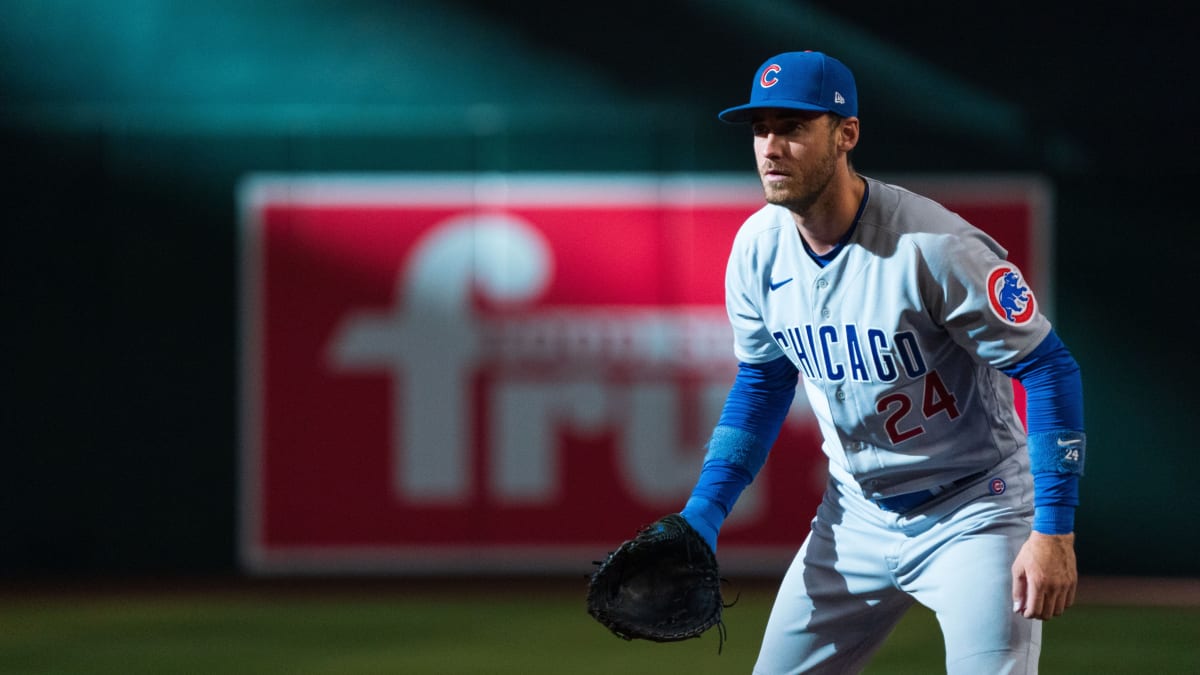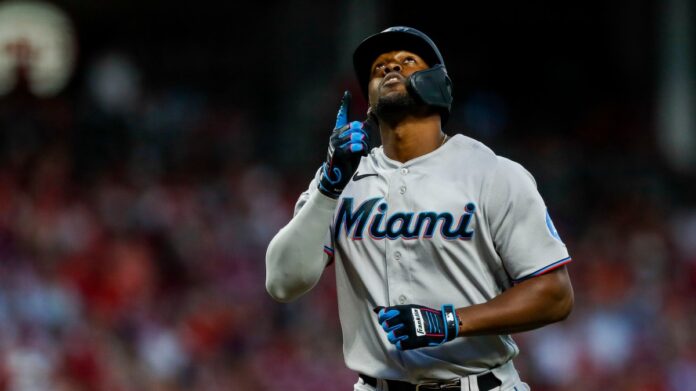At this time last year, I tagged Carlos Estévez as one of my biggest free agent bargains. Who? And why Estévez? After all, he was a 30-year-old relief pitcher with a career 4.59 ERA who fanned 23% of batters the previous year with Colorado—about league average.
Here’s why: 1. Get any pitcher out of the altitude of Colorado and you’re probably looking at improvement, and 2. Estévez throws with elite velocity from a low release point.
The Angels signed Estévez to a two-year, $13.5 million contract. Indeed, it was a bargain. While Estévez threw his slider too much and his fastball not enough, he saved 31 games, made the All-Star team and set a personal best strikeout rate (27.8%).
While the mega-offers for Shohei Ohtani, Yoshinobu Yamamoto, Cody Bellinger and Blake Snell will dominate free agency talk at the winter meetings in Nashville this week, let’s find the 10 biggest bargains of this shopping season. I’ll also look back on what turned out to be the 10 biggest bargains of last year’s class. Two players happen to make each list.
This Winter’s Biggest Free Agent Bargains
1. Robert Stephenson, RP
Yes, a guy with a 17–20 career record, 4.64 ERA and three saves is in demand—all because of four months getting his pitching master’s degree at Rays University.
Last June 2, the Pirates became the third team in 32 months to give up on Stephenson after he was previously traded by Cincinnati and waived by Colorado. They traded Stephenson to the Rays for minor league infielder Akila Williams, a trade nobody noticed. Stephenson was 0–3 with a 5.14 ERA.
Even though he threw his four-seamer hard (96.9 mph) and with elite spin (2,402 rpm), Stephenson had missed only one bat with his fastball all year. One swing and miss on 74 heaters.
Then the Rays and pitching coach Kyle Snyder went to work. They:
1. Showed Stephenson how to elevate his fastball.
2. Tightened the break on his slider so much it became a cutter.
The result? He went 3–1 with a 2.35 ERA in 42 games as a Ray, with 60 strikeouts in 38.1 innings. For the year, he struck out 38.3% of the batters he faced—the third-best strikeout rate of all pitchers who threw at least 50 innings.
2. Wade Miley, SP
He posted a 3.14 ERA last season in 23 starts. Do you know how many pitchers last season made that many starts with an ERA that low? Ten. That’s it.
Over the past three years he is 23–13 with 3.26 ERA in 60 games (59 starts). Just as importantly, he is the rare starting pitcher who is a “glue guy” in the clubhouse.
3. Phil Maton, RP
Who doesn’t want a platoon-neutral, durable reliever? Maton is one of only 10 pitchers to work in 200 or more games over the past three seasons. His fastball with elite ride and his big curveball work well against both lefties and righties. With each year he relies less on the fastball and more on the curveball (curve use since 2019: 19%, 20%, 24%, 32%, 40%).
Katie Stratman/USA TODAY Sports
4. Jorge Soler, DH
Accept the flaws: he provides no defensive component, struggles against spin and has lost speed. But those deficits allow a club to buy pure power cheaply. Soler mashed 36 homers last year. For a smaller revenue team that needs thump, Soler is a rare, affordable middle-of-the-order threat.
5. Justin Turner, DH
At age 38, the dude can still hit. Despite wearing down in the last month, he set career highs with 154 hits and 96 RBI. He returned an OPS+ over 110 for a 10th straight year, joining Mike Trout, Paul Goldschmidt, Freddie Freeman and Bryce Harper as the only players on such a reliable run. Turner opted out of the second year of the deal he signed with Boston last offseason. He is a career .288 hitter overall but .312 with runners in scoring position. His value also comes from clubhouse leadership and serving as a de facto hitting coach. I thought Turner would have been a better fit for Arizona than Eugenio Suárez.
6. Brandon Woodruff, SP
He will miss most or all of next season because of shoulder surgery. But this is the kind of guy you want in your organization: a high character, hard-working, uber-competitive talent. Give him a two-year deal and you benefit from having Woodruff even as he works his way back to the mound. And if he’s back to full health in 2025, you have a front-of-the-rotation pitcher.
7. Michael Wacha, SP
At the end of the 2021 season with the Rays, Wacha began throwing two-seamers to complement his traditional four-seam fastball/changeup combo. The arm-side run pitch (in on righthanders; away from lefties) gives him a pitch with west-east movement he didn’t have before, making him a much tougher at-bat. In the past two seasons, Wacha is 25–6 with a 3.27 ERA. He’s not a 30-start guy, but an intense competitor who can provide elite innings.
8. Sean Manaea, SP
Hmm, a durable lefty who throws 94 with deception? Some team will be smart enough to commit to Manaea as a starting pitcher and narrow his pitch usage to only the fastball, changeup and sweeper. He’s gone through too many changes. In his best year (2018 with Oakland), Manaea threw 56% sinkers. In his worst year (‘22 with San Diego), he threw 52% four-seamers. Last year with San Francisco he added a sweeper, virtually abandoned his sinker and saw an increase in four-seam velocity (93.6) as the Giants moved him back and forth between the pen and rotation. Like Aroldis Chapman last year, he’s a good bounceback candidate for a rebuilding club who can flip him in July.
9. Luis Severino, SP (Signed with Mets, one year, $13 million)
10. Nick Martinez, SP/RP (Signed with Reds, two years, $26 million)
I had these guys on my list before they signed. Severino is 29 and in good arm health. His problems last year stemmed from losing confidence when he battled constant pitch-tipping theories and having his fastball absolutely pounded as it lost its life, not velocity. The first thing I’d dive into is his cutter use and its effect on his fastball; the more he threw his cutter, the less life his fastball had, which is not uncommon. Martinez will get a chance to start but is an exceptional athlete with a plus changeup who can fill any role.
Last Winter’s Biggest Free Agent Bargains
1. Nathan Eovaldi, Rangers (two years, $34 million). At age 33 and with a history of arm injuries, Eovaldi returned 25 starts at an elite level (123 ERA+). Fold in his spectacular postseason (5–0, 2.95 ERA; Texas was 6–0 when he took the ball) and that’s why he’s No. 1 on this list.
2. Zach Eflin, Rays (three years, $40 million). Paid like a back-end starter, Eflin returned front-end results. In a career year, he led the league in wins (16), was second in strikeout-to-walk rate (7.75) and walks per nine innings (1.22) and third in FIP (3.01).

Allan Henry/USA TODAY Sports
3. Cody Bellinger, Cubs (one year, $17.5 million). Non-tendered by the Dodgers, he did more than change scenery for a bounceback year. He opened his stance, lowered his hands, emphasized a better load on his back hip and cut down on his swing with two strikes. The result? The power is not back to where it was in 2019, but he was the best two-strike hitting outfielder since Mookie Betts five years ago—a huge improvement after having so much swing-and-miss.
4. Wade Miley, Brewers (one year, $4.5 million).
5. Carlos Estévez, Angels (two years, $13.5 million).
6. Justin Turner, Red Sox (two years, $21.7 million).
7. Aroldis Chapman, Royals/Rangers (one year, $3.75 million). Nice job by Kansas City, turning three months of Chapman into an impressive young starter (Cole Ragans). Chapman walked too many batters (14.5%) but overcame them with a sky-high strikeout rate (41.4%).
8. Jason Heyward, Dodgers (one year, $720,000). Released by the Cubs, Heyward posted the second-best slugging percentage (.473) of his 14-year career. He also was every bit the glue guy the Dodgers expected.
9. Mark Leiter Jr., Cubs (one year, $850,000). Featuring his splitter, he dominated lefties (.185) and made 39 of his 69 appearances in high-leverage spots.
10. Jeimer Candelario, Nats/Cubs (one year, $5 million). Non-tendered by Detroit, Candelario, 30, bounced back with career highs in homers (22) and RBI (70).

